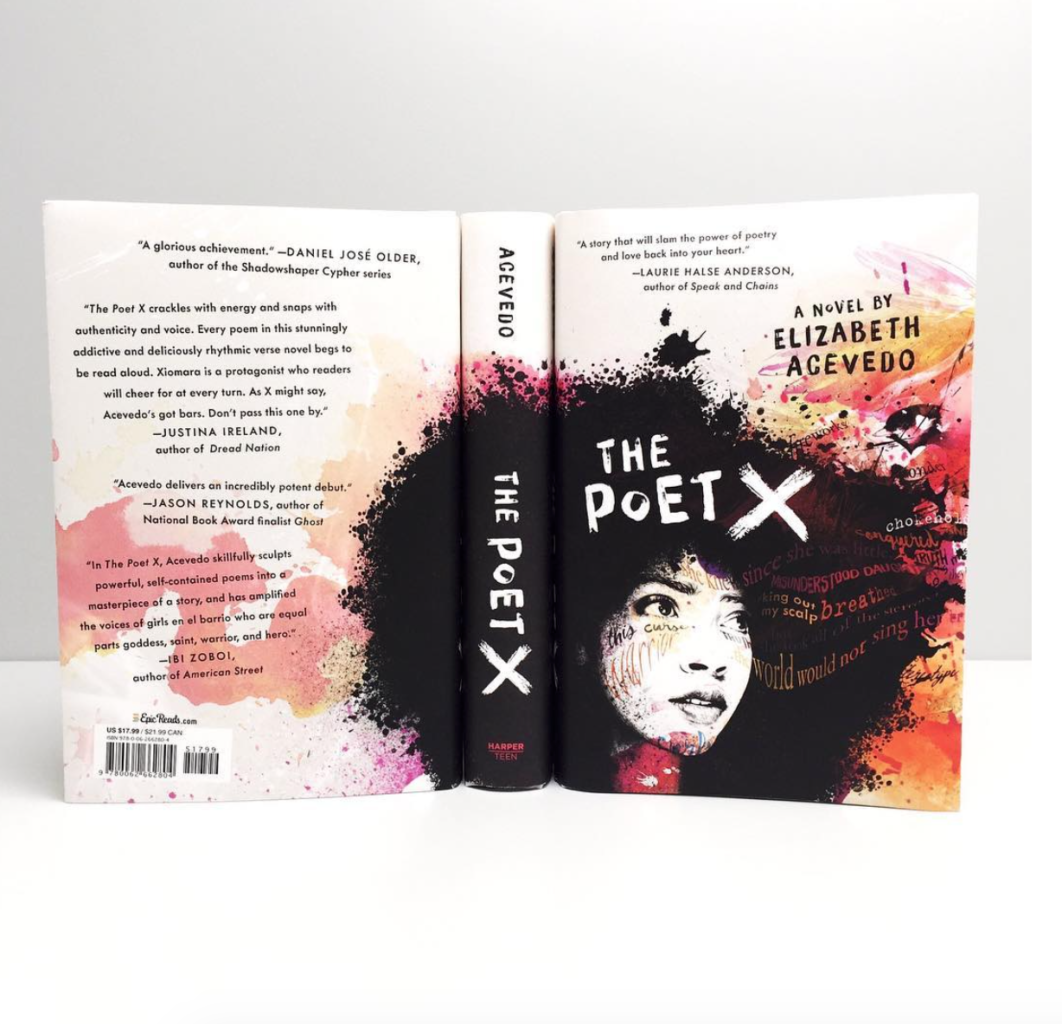Elizabeth Acevedo talks The Poet X, identity and facing fear
"If you find it daunting, good, you are doing it right."
Written in verse, with inspiration pulled from both her own high school journal entries and her work with teens, slam poet and educator Elizabeth Acevedo’s debut novel ‘The Poet X’ packs a punch. It tells the story of fifteen-year-old twin and daughter of Dominican immigrants, Xiomara Batista. ‘The Poet X’ follows Xiomara as she finds her voice through poetry, whilst navigating her body, sexuality, religion, first love and relationships, all under the gaze and expectations both society and her strict Catholic mother have placed upon her.
Amidst the news of ‘The Poet X’ being nominated for a 2019 Carnegie Medal, we got the chance to talk to Elizabeth Acevedo about her stunning debut novel.
First off, a huge congratulations is in order for being nominated for the 2019 Carnegie Medal, that’s amazing and so well deserved! How did it feel to find out ‘The Poet X’ was being acknowledged in this way?
It felt wonderful. I don’t think I really understood the international resonance of this novel until I was nominated for the 2019 Carnegie Medal. It reaffirms that certain themes truly are universal.
As well as writing ‘The Poet X’ you also narrated the audiobook, which is something not many authors get to do. What was the experience like for you?
I loved narrating the audiobook of ‘THE POET X’, even though I wasn’t entirely sure what I was doing at first. I wasn’t sure if certain passages should be more affected or what, but after the first day I got the jitters out and realised narrating an audiobook is like performing on stage, I simply needed to lean into the language and let it guide the performance.
Poetry plays a huge part in both your own life and Xiomara’s, how did you initially discover your passion for it?
I’ve written poetry for as long as I can remember. I think I inherited a passion for it, although I can’t identify any poets in my lineage. That said, I come from storytellers, and this was simply the medium I chose to tell my story.
Each poem and page of ‘The Poet X’ is beautifully crafted; is there anything you wish more people knew or understood about the art of writing verse?
I wish more people would spend time with the ways the craft is responding to the content. For example, when a page is entirely one sentence and the way that creates momentum and reflects Xiomara’s racing thoughts. Or how the line-breaks are very specific and intentional to ensure the reader is landing on specific images. When I read novels in verse that don’t seem to be taking into account how the aesthetics of the page are directly communicating not only “what” is happening but, “how” it’s happening, it makes me wonder at the missed opportunities that the writer never engaged.
Identity and the individual challenges that can come with each different facet of a person’s identity is a major theme throughout ‘The Poet X’, was it important for you to write a narrative which showed Xiomara allowing herself to be empowered by the different facets of her own identity?
Yes. Ultimately Xiomara is not saved by anyone or anything that did not come from her own acceptance of self and her resourcefulness in the face of adversity.
The world of reading, writing, watching and performing poetry can be a daunting one, especially if it’s something you’re not familiar with, do you have any advice for someone wanting to explore it for the first time?
My favorite poets and performers face fear every time they approach the page or stage. I’m the same way. It’s a part of the process of being vulnerable. If you find it daunting, good, you are doing it right. Now face that fear and allow yourself to write/perform as if it might save your life, because it very well might and also play and experiment as if the child inside you might applaud, because they very well will.

‘The Poet X’ by Elizabeth Acevedo is available to buy now in the UK and US.


